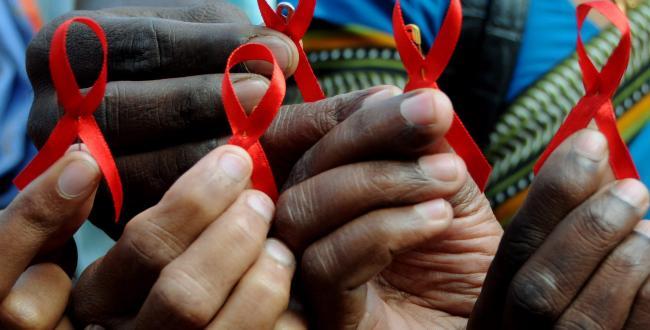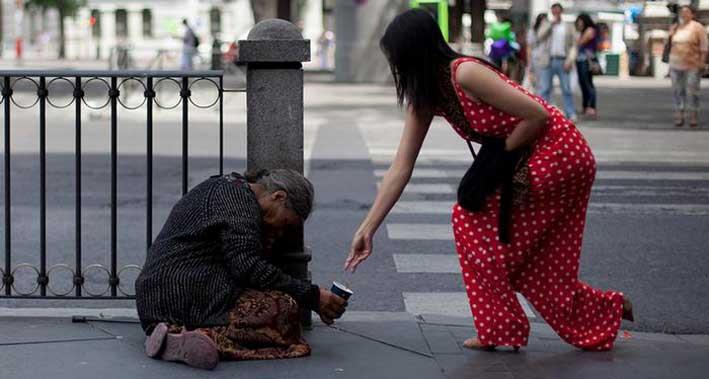About 124 million people, 24.8 per cent of the EU population, are at risk of poverty and social exclusion. A Eurostat report published last week revealed that non-EU citizens are twice as likely to be at risk of poverty in the 28-nation bloc. 48.7 per cent of those at risk of poverty are non-EU citizens, compared to 22.8 per cent of EU citizens; the percentage represents those aged 18 and over living. Malta is one of the member states where the rate of severe material deprivation increased between 2008 and 2012, with the most notably rises registered in Greece, Lithuania and Hungary. The risk is particularly high among young people, women and children. The figures do not include some of those living in harsh conditions situations, such as minority ethnic groups, immigrants, or homeless people living in institutions.
The 4th Annual Convention of the European Platform against Poverty and Social Exclusion was held in Brussels between 20 and 21 November. The convention brought together 700 participants, providing a platform for exchanges between policy makers, key stakeholders and people who have experienced poverty.
Poverty, a damning reality - EP President
Addressing the opening of the convention, President of the European Parliament Martin Schulz said that the reality of poverty needs to be tackled head on. "We need to act on all fronts, at all levels. We can't afford to leave a stone unturned. At a time when finances are stretched, I urge all member states to make use of social funds."
The Fund Aid to the Most Deprived (FEAD) was created to support EU member states' actions to provide material assistance to the most poor. However, according to Mr Schulz, a number of member states have attempted to end the programme. Mr Schulz also expressed his disappointment that some member states failed to allocate funds for the youth guarantee programme, a programme to tackle youth unemployment.

The EP president stressed the need of transparency, noting that €1 trillion were lost in tax evasion. "Inequality threatens the foundations of our democracy. Member states need to address their responsibility immediately," he said.
Commissioner for Employment, Social Affairs, Skills and Labour Mobility, Marianne Thyssen emphasized the importance of job creation to fight poverty. She noted that although poverty is strongly related to unemployment, there are a number of working citizens who are still at risk of poverty. "We can't say we've solved a problem if there's a shift from the poor unemployed to the working poor. This is not solely about creating jobs, but about creating decent jobs," she said. "Those jobs created need then be made accessible, for people with different abilities."
Ms Thyseen emphasised the importance of improving welfare systems that protect the most vulnerable, including those who are unable to work. In all this, the EU has a co-ordinating role, but poverty needs to be tackled at a national level. She added that Europe needs to embrace its biggest asset - its people.
During the convention, it was noted that social protection systems have not been modernised, and structures are often inflexible. Labour activation measures are still missing in some member states' policies.
IV discriminates, it takes advantage of the weakest of society
A key speaker at the convention was Mark Heywood. Mr Heywood is a representative of the NGO Section27, and also a member of The Treatment Action Campaign (TAC), both based in South Africa. Section 27 of the South African Constitution deals with the rights to food, water, health care and social assistance. NGO Section27 started teaching communities about their rights so they could protest by referring to legislation.
"The greatest milestone in South Africa came in 1994, when people were free, and Nelson Mandela was elected President. However, it has not been a free ride since then."
Mr Heywood explained that one of the most obvious threats in the early 1990s was the HIV epidemic. Inequality became widespread. In the early 1990s, projections were already made that within 10 years, five million people could be infected.

"HIV does discriminate. It takes advantage of the weakest of society - it is the poor that have least autonomy. It is the poor and unprotected people that have least control over their body. Women, young girls and sex workers are most at risk. Threats of disease can be fought from within the communities themselves."
The Treatment Action Campaign pushes people with HIV to speak publicly about it. Earlier this year, T-Shirts were printed with HIV Positive on them. This proved a sign of support for those infected by the disease, while exposing the stigma surrounding the disease.
"People with disease are talked down to. The NGO started working with poor communities to gather more knowledge about the diseases, in order to communicate the facts back to clinics."
So far, the NGO has managed to prevent 2.5million deaths of people now on treatment. Life expectancy has increased by 10 years in South Africa because of this. The risk of passing on HIV to babies inside the womb has decreased from 30 per cent to two per cent. In 2002, the NGO won a constitutional court case in which the South African government was ordered to prevent anti-retroviral drugs to present transmission of HIV from mothers to babies during birth.
South Africa has been established as a middle income country; however the inequalities are still severe. There are 12 million starving people in South Africa.
Mr Heywood said that a young people's rebellion has been sparked off, and it will only cause more damage. In South Africa, four service delivery protests are held each day. Young people go to libraries and clinics and burn all they come across, because they are angry about inequalities. They later end up being beaten by the authorities.
Media fails to portray realistic situation
Balgopal Kurap Stalin, from Video Volunteers India, stressed that social exclusion is accentuated if the minorities do not protest against policies that go against their rights. The content in mainstream media does not give a realistic portrayal of poverty and social exclusion and, in addition, only two per cent of the media content covers such issues. This is because producers of such content belong to a certain class, and therefore can't represent the issues of the poor. "Poor communities are prevented from expressing their opinions," Mr Stalin said.
He explained that people from Nagri Village in India are concerned about lack of monsoons in the village. The residents of Nagri earn their living from crop growing, and use profits to pay for their education. The government is now attempting to take the land for development. A good one year harvest can meet the requirements of villagers for three years. "The governmental project seems to have been set up for me to drown in," one villager featured in a video said.
Video Volunteers was launched in 2003 and, since then, has been creating programmes and projects which empower poor communities to have a voice to address inequality. Video Volunteers publishes two or three videos online each day, portraying similar situations in an attempt to fight for values of democracy. The organisation launched India Unheard, a community news service that has a network of community correspondents who are trained to tell stories about their own communities, stories which are otherwise left untold.
"We need to help people help themselves"
Martin Burt, from Fundaction Paraguay, said that the press portrays poverty as despair, or disorientation. Microfinance, he explained, is a social innovation that started 40 years ago, when one Nobel Prize winner described a street vendor as an entrepreneur. Changes in definitions can help poor people lead a better life.
The EU needs to look at the issue using a new perspective. Today, technology can help people diagnose their own poverty, and strategies to deal with it. "Poverty belongs to the poor. Let's ask the people how they came to be poor, and what they are willing to do about it," he said.
"We need to engage in an integral approach, analyse the input, the output. We need to help people help themselves. We must think of the outcomes of our social policies, and not solely about budgets and activities. We need to question whether ultimately, people are overcoming poverty or not. People can be proactively in charge of their own destiny."

Women around the world are more prone to end up being poor. Women make up half the world's population, yet they represent 70 per cent of the world's poor. Across the EU, about two thirds of old age pensioners are women. However, in some countries, more than a third of women have no pension. In addition, a study published in 2013 revealed a 39 per cent gender pension gap. Earnings and labour force participation intensity are the two main factors that lead to this. As an average, women earn 15 per cent less than men.
Member states systems can combine pension pillars where different principles of benefit accrual apply. However, where pension systems are dominated by schemes that only cover those in formal employment, differences in the labour market determine benefits.
The Commission's White Paper on Pensions put forward recommendations to help ensure that women receive more adequate pensions through adequate minimum pensions, care credits and pension rights splitting at divorce. This gender gap can also be the result of under-representation of women in policymaking and institutional resiliency. In some member states, it is difficult to overcome the idea that pensions are earned deferred wages.
- Call for social innovation at local level
Addressing a session discussing social innovation for better social outcomes in cities, the mayor of Ghent, Daniel Thermont, stressed that although financial issues are present, having a budget is not enough; there is also the need of innovative ideas. "It's incredible that in Europe today, there are still people living in the streets," he said.
CEO of Citymart, Sasha Haselmayer, said that 10 per cent of the world's GDP is spent by cities in at attempt to improve the lives of people.
During the debate, local authorities called on the EU to turn to the local level for social innovation. In Malmo, local governments have embarked on a project, in collaboration with construction workers, to provide a face lift to neighbourhoods with insufficient housing and unemployed people.